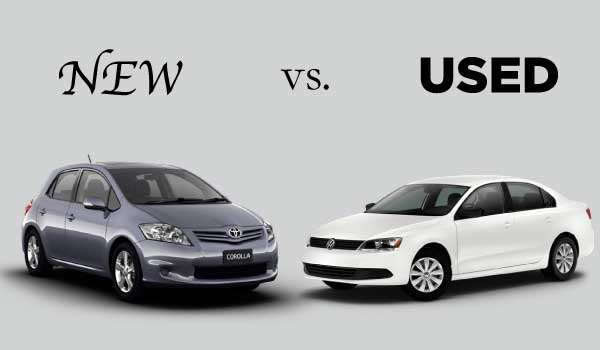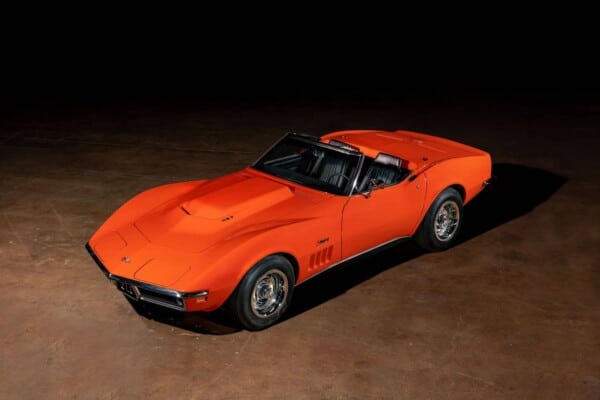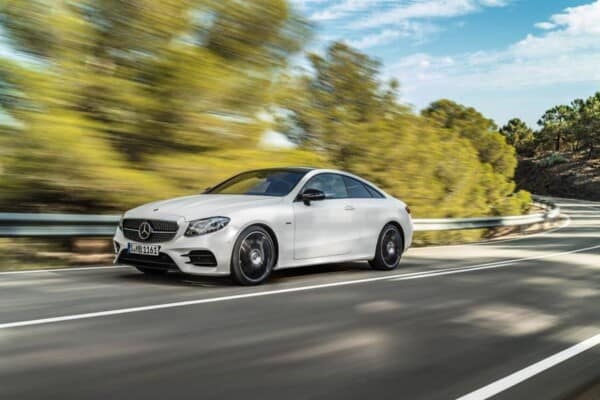You’ve probably at least once in your life had to buy yourself a car. Most certainly, one of the questions that has to have crossed your mind regards the type of car that would be acquired. And god forbid you asked for your friends’ opinions, because they would only manage to confuse you even more. There are basically two main categories of answers people would give when asked for their opinion on the topic. One would claim that “nothing compares to a new car, with risks being fundamentally diminished”, while the other would try to persuade you to go for a used one, as there’s no point in paying this much for something that gets out of value in no time.

Let’s discuss our options to help you decide whether you should buy a new or used car.
Buying a new car is surely tempting, but you have to pay the full price of this vehicle. Whereas if you decide on a used car, potential problems may arise. There are advantages and downfalls to each option, but we’ll hopefully cover all of them in this post and help you make the right choice.
Advantages and Disadvantages of a New Car
The pros
- There (theoretically) is no technical risk involved
If nobody else has ever driven the car of your dreams, there’s no risk in it eventually breaking down. At least, not because of that. We’re not talking here about cars that aren’t very well-built from their very beginning. This is just to point out that there are numerous bad drivers out there and, in case you stumble upon the vehicle that was previously driven by one you’re in for huge disappointment.
There have also been cases of car series suffering from major technical problems – as was the famous case of Toyota’s Corolla, RAV4 and Yaris – but we’re presuming that this was an exception and not the rule.
- A new car offers warranty. Plus many other options.
And this can be extremely reassuring, especially when the brand you’re buying from offers an extensive one. Full warranty is something no used car will grant you.
Moreover, considering that you’re buying the latest version of a certain model, you’ll be benefiting from all of the latest advantages. Which is never the case for a car fabricated 4 or 5 years previously.
- Safety is key and little at risk with new cars
If your car has only been driven on the dealer’s lot, there’s not much safety risk associated with it. No matter how many inspections you perform on a used car’s adaptive cruise control, airbags or blind-spot monitoring systems, some people are masters at hiding potential problems. Best way to avoid these is to make sure nobody has driven your car.
- Maintenance can be cheaper
Okay, only if you’ve bought a luxury car brand. Mercedes, Audi or Cadillac are renowned for offering quite a few free checkups after the car has been purchased. And thank god for that, because you don’t want to imagine how much it costs to replace brake discs for an Audi Q7.
If you go for the more affordable car brands, chances are you won’t get any maintenance included.
- Nothing compares to (the smell of) a new car
This may not be such a strong argument, but let’s face it: if you’ve ever driven a new car, you must have enjoyed sniffing its upholstery. More than once.
- Emissions are lower
There are many people who buy their vehicles exactly based on this criteria. Speed or cabin options are pale when compared to fuel emissions. And we have to give them that: if we all did our best to combat global warming, we’d all have a lot to win. And we’d be all be driving hybrid cars probably.
The cons
- The price
New cars are expensive, regardless of the brand. Luxury or muscle models can even surpass the average price of a new car. For many of us, the possibility of purchasing a Range Rover or a Maybach out of the dealership may be a beautiful dream. For others, it simply does not make sense to pay a ridiculously high amount of money on a vehicle.
For all the true car lovers out there, the dream will always be closer to reality on account of a used car. After all, a 4-ear old Mercedes GLK is still expensive, but much more affordable than the latest model.
- You’ll have to stick with it for a while
Especially if you’ve got a lease. Bank loans are usually given for a certain period of time (they can even go up to 10 years). If you’re the thrifty kind, you may manage to pay the loan earlier than estimated, so that you can start thinking about selling your car and exchanging it for a new one. But if you’re not, tough luck. You’ll need to make a new lease or, alternatively, keep the car for as long a time as possible.
- You won’t be able to sell it for the same money you paid
That’s the sad truth. Buying a new car is a significant financial effort, not to mention if you’ve acquired it via a lease. You’ll have to make peace with the thought that, by the time you’ll want to sell your car, its value will have decreased at least twice.
- Insurance is costly
Many people prefer purchasing used cars just for the sake of lower monthly insurance. And this comes as no surprise. Monthly payments for a luxury car can be costly, but it will still decrease with age.
Advantages and Disadvantages of a Used Car
So should you save money and invest in a used car? Let’s talk about it. But if you do, here’s a complete guide on buying used cars
The pros
- Affordability
This is one of the main reasons why people go for used cars instead of new ones. Let’s leave aside the case of accessible luxury pre-owned brands and think about the regular Joe, who could never afford to pay a lease, be it for an expensive one or for a more affordable version. And, since the market offers vehicles in the range of a few hundred dollars, this remains Joe’s only option of ever owning a car.
- Less decrease in value
Supposedly, your used car is at least one year old, so in case if you decide to sell it in 6 months’ time, you won’t have lost huge amounts of cash. The older the car, the closer to its initial value the sale price will be.
- Cheaper insurance
And this is about it. Fewer pros than in the case of a new vehicle.
The cons –
we’ll only be listing them briefly, as most of them can be deduced from the advantages of a new car
- Reduced safety + potential technical problems
Nobody can guarantee for a used vehicle, not even the most trustworthy dealers. In the case of a cheap used vehicle, it’s really up to the driver to care for his own skin. Many accidents nowadays occur especially due to poorly maintained vehicles.
- No warranty
That’s right, only expensive cars will offer you warranty. Unless you buy a certified car that comes with a short time limited warranty and a long period power train warranty. Or if you purchase an aftermarket warranty, that’s a good option too.
- More expensive maintenance
Especially if the car has not been driven very carefully by its owner - Higher emissions
Only in the case of cars that are used and older - And, of course, no possibility to feel the new car odor
This is undeniably hard to deny, in spite of the new car fragrances making their way on the market
What do we recommend?
We personally think it’s better to buy a used car that’s not very old.
If possible, invest more money to buy a certified car that dealerships have to fully inspect and offer warranty, which can also give you peace of mind. This way you can also eliminate the disadvantage of major decrease in value during the first few years, and be assured that your car is trouble free.
Let us know what you thought about it, and feel free to make any suggestions in the comments below.






